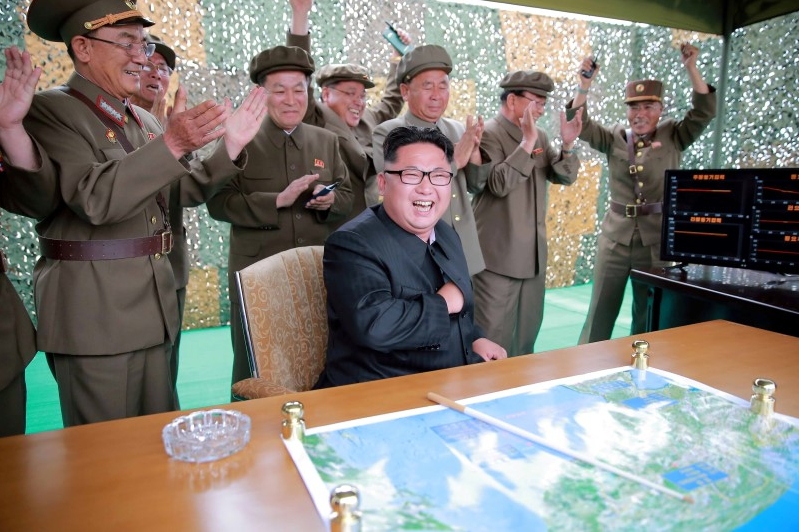
North Korea leader Kim Jong Un said after supervising the test launch of an intermediate-range missile that the country now has the capability to attack U.S. interests in the Pacific, official media reported on Thursday.
South Korean and U.S. military officials have said the North launched what appeared to be two intermediate-range missiles dubbed Musudan on Wednesday. The first of the two was considered a failure.
The second reached a high altitude in the direction of Japan before plunging into the sea about 400 km (250 miles) away, they said.
The test-fire was successful without putting the security of neighboring countries at risk, the North's KCNA news agency said, referring to the missile as a "Hwasong-10." Hwasong is Korean for Mars.
"We have the sure capability to attack in an overall and practical way the Americans in the Pacific operation theater," KCNA quoted Kim as saying.
The missile, which is fired from mobile launchers, has a design range of more than 3,000 km (1,860 miles), meaning all of Japan and the U.S. territory of Guam are potentially within reach.
A spokesman for South Korea's military, Jeon Ha-gyu, said the second launch demonstrated "technical progress in terms of its engine capacity". However, Jeon said it would not be meaningful to discuss whether it was a success because it was not a normal flight.
Japan and South Korea said the missile flew to a height of 1,000 km (620 miles). Experts said it appeared North Korea had deliberately raised the angle of the launch to avoid hitting any territory of Japan.
South Korea and the United States condemned the launch as an unacceptable violation of U.N. Security Council resolutions.
Japan's Defence Minister Gen Nakatani said the launch was an indication that North Korea's threat to Japan was intensifying.
The United Nations Security Council, which in March imposed new sanctions on the North following its fourth nuclear test in January and a long-range rocket launch in February, met at the request of the United States and Japan.
"All expressed a strong concern as well as their opposition (to) these launches," Alexis Lamek, Deputy U.N. Ambassador of France, which holds the Security Council presidency for June, told reporters. He said he hoped a statement condemning the move could be agreed on soon.
U.N. Secretary-General Ban Ki-moon described North Korea's latest ballistic missile launches as a "brazen and irresponsible act".
North Korea had failed in at least five previous attempts to launch the intermediate-range missiles.
The North is believed to have up to 30 Musudan missiles, according to South Korean media, which officials said were first deployed around 2007, although the North had never attempted to test-fire them until this year.
North Korea and the rich, democratic South are technically still at war because their 1950-53 conflict ended in an armistice, not a peace treaty. The North regularly threatens to destroy Japan, South Korea and the United States, South Korea's main ally.







